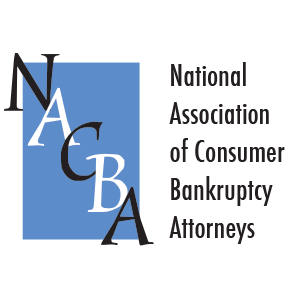New Jersey Bankruptcy Lawyers
Filing bankruptcy is a big decision and should never be taken lightly. It is often during a very stressful time and you need to be under the care of professionals who have targeted experience with the bankruptcy process and clients who are totally satisfied with their work. We have both:
- Our experience is solely in bankruptcy and we’ve been doing it for 30+ years. When you work with us you won’t be dealing with a firm who dabbles in the bankruptcy process part time.
- Our past clients are our best advertising. In fact, most clients find us through our 5 star Google Reviews.
The Bankruptcy Process in New Jersey
Filing for bankruptcy in New Jersey isn’t much different than filing in any other state since it falls under federal law, not state law. However, the NJ law does matter when it comes down to the property you can keep in your bankruptcy case. This is when experience counts in the law firm you choose.
Here’s a list of what can be expected during the process:
- Attorney Consultation. You should consult with a few attorneys before choosing the one you’ll move forward with. We always encourage new clients to speak with us by calling 732.30 so they can get to know us before we even meet in person.
- Required Documents. You’ll need to compile a list of documents related to your current financial situation. This may include your last two years tax returns, 6 months of pay stubs, an appraisal of any real estate you own, contact information of your creditors and how much is owed them, bank/investment/401K statements, car loans and mortgage payment amounts. This is not a comprehensive list. Remember, everyone’s situation varies so more information may be needed depending on your situation.
- Bankruptcy Petition. Your attorney will now prepare and file a bankruptcy petition. It may be for a Chapter 7, Chapter 13, or Chapter 11 depending on your particular situation.
- 341a Meeting of Creditors. After the filing of the bankruptcy petition, a notice is sent out to all creditors to whom you owe money. They will now be stopped by the ‘automatic stay’ from suing you or chasing after you in any way. This notice contains the case number, date, time and place for the 341a meeting of creditors. You and your attorney will meet with the court appointed trustee to review the petition and take testimony.
- Discharge Order. After the 341a meeting, the creditors and the trustee have 60 days to file a complaint objecting to the discharge. If no one objects within these 60 days, you would receive a discharge which is the final Order entered by the Court and wipes out the outstanding debt.

Our Commitment To You
Knowing how to file bankruptcy and choosing which type is best for you is crucial. The bankruptcy lawyer you choose should be able to educate you on all the options available, fully understand your particular situation and be committed to reaching your goal of a Fresh Start. If you are interested in learning more about how we can help you with your bankruptcy, give our office a call at 732-302-9600 to discuss your situation in a bit more detail.







